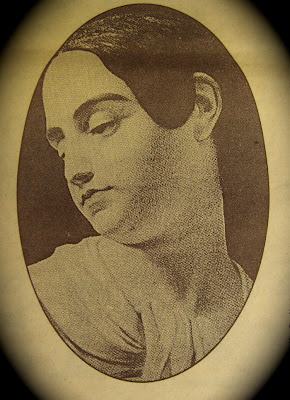



A TRIBUTE TO POE (This article I wrote for the Bronx Times on October 21, 1999 and it also appeared in The Noose, the newsletter for Mystery Writers in America.)
In 1841 Poe published “The Murders in the Rue Morgue” introducing the eccentric amateur detective, Monsieur C. Auguste Dupin, and evermore opened the door to new possibilities for the story teller.
Mystery Writers of America (MWA), an association of mystery writers, founded in 1945, chose Edgar Allan Poe as their Patron Saint. Each year, in May, MWA selects the best novel, short story, first novel, non fiction book, young adult and children’s books, theater and television productions in mystery and suspense and present each with an Edgar Award. This award is both an honor to the writer and a tribute to Edgar Allan Poe, the master of mystery and suspense. Over the years many esteemed mystery writers, such as Dashill Hammett, Graham Greene, Alfred Hitchcock, to name only a few, have received an Edgar. Over the past 53 years since the awards inception, hundreds of American writers, who thrill and excite the reader, have received this honor.
Edgar Allan Poe’s writing has had a profound affect on more than just the American writer. In 1846 The Black Cat was translated into French and created for Boudolair limitless possibilities to create his new work. Japanese writers have been inspired by Poe’s ability to depict the terror of the soul and, in using what they call the twice told tale, retell folk lore with a Poe twist. For writers like Kafka, Poe envisioned the state of the world as they saw it and helped to create for them a new consciousness. Poe became a major literary presence for Latin American writers honing their skills around the turn of the Century. Carlos Fuentes attributes to Poe his need to write in a way that allows the reader to perceive the world in unaccustomed ways and to discover hidden possibilities. In some countries the Raven became a metaphor for the murky life of Social oppression, while for writers in other countries Poe demonstrated a way to examine evil and how to put visionary experience into language.
But on October 7, 1999 when Brian Dennehy stood on the porch of the Poe Cottage and read The Tell-Tale Heart I understood for the first time the power Poe could weave into a story. As Mr. Dennehy’s voice skillfully maneuvered through this tale of a dreadful deed, it was absolutely clear to me why we never tire of Poe’s stories. It was because his stories never fail to pull you up close to their breast as they breath their foul stench into your face, no matter how many times you hear them.
